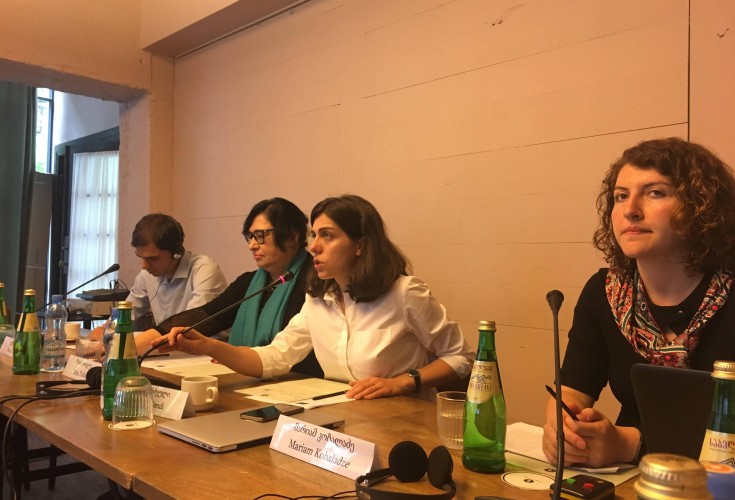საერთო ცხელი ხაზი +995 577 07 05 63

26Jun

26 June 2019, Tbilisi - Human Rights Education and Monitoring Center (EMC) and Caucasus Research Resource Centers (CRRC Georgia) presented findings of the study on the role of judges in the criminal justice system. The study was implemented within the framework of “Facilitating Implementation of Reforms in the Judiciary (FAIR)”, a project funded by the European Union.
The study aimed to identify the issues in regard to the role of judges that legal professionals (judges and lawyers) find important for ensuring fair, impartial and human rights oriented criminal justice system. During the research, the individual interviews with judges and focus groups with criminal defense lawyers revealed the following key findings:
“I would like to express gratitude towards the European Union for not only this study but for everything that the EU does for the development of the Georgian justice system. I want to confirm that this support has already led to specific positive results” - said Ms. Mzia Todua, Acting Chairperson of the Supreme Court of Georgia.
“The Association Agenda sets out the objective to ensure fair trial, access to justice and procedural rights in Georgia in line with European standards. So this study comes really in handy, as it helps to take stock of important aspects, such as adversarial principle, plea bargaining, or the rights of victims.” - said Mr. Peter Danis, the representative of EU Delegation to Georgia.
The overall objective of the EU-funded project is to support real reforms of the judicial system through monitoring, evidence-based advocacy, strengthening of individual judges and promotion of dialogue with them. The project also aims to increase the involvement of community groups in the reform process of the judiciary through awareness raising and mobilization.
The website accessibility instruction